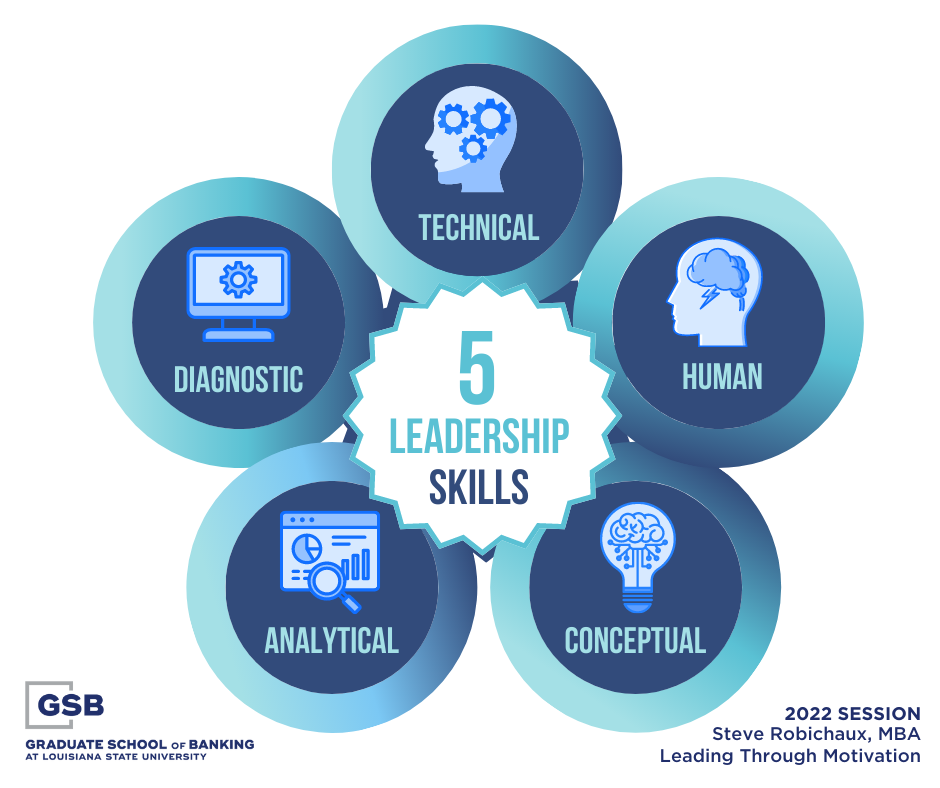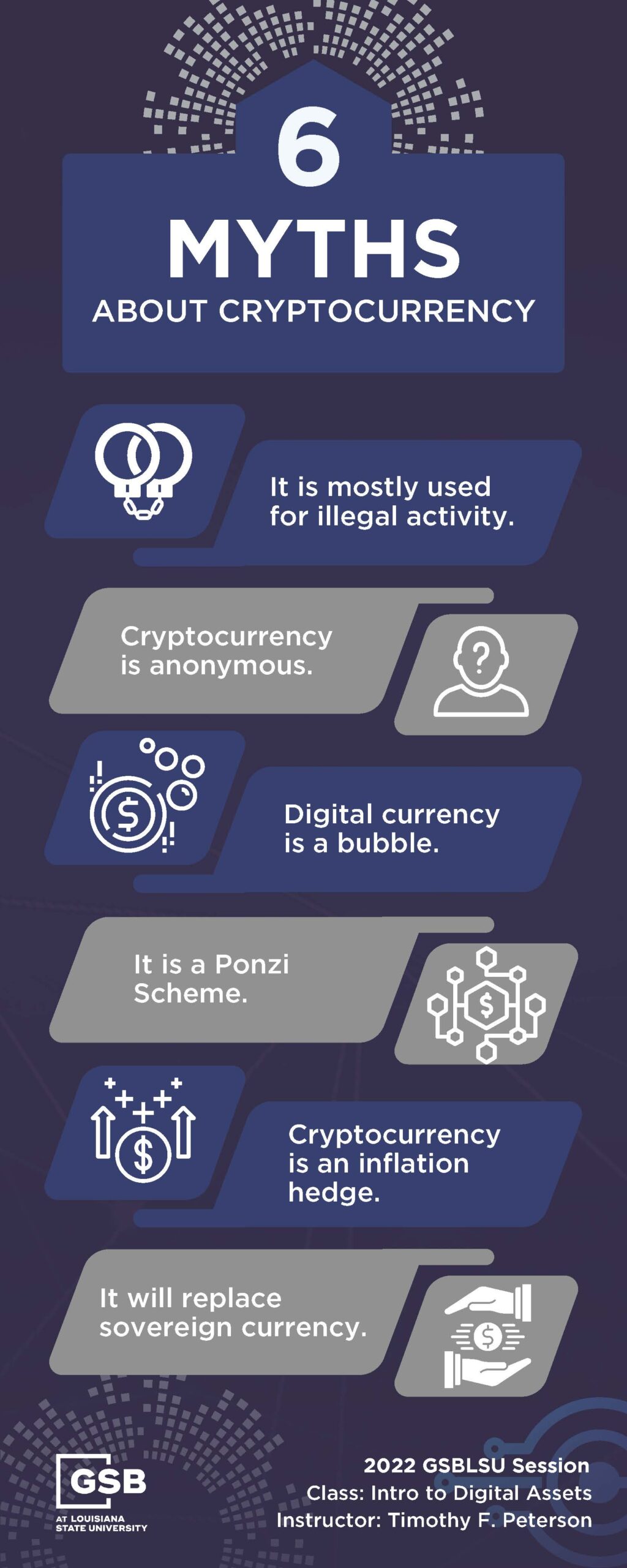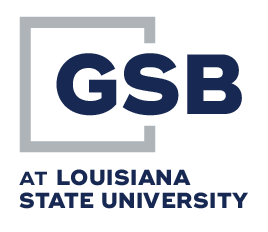5 Benefits of Enrolling in Graduate Banking School of LSU
/in Application, Community Banking, Graduate School Options, GSBLSU/by gsblsuIf you are reading this, you are likely weighing some important decisions. After all, attending a graduate school of banking is a big step in your career and education. You may have your pen ready with your list of pros and cons nearby as you look to this blog for some insight about why now is the time to attend. Fortunately, you’ve turned to a good source.
GSBLSU has a long history of helping its students gain a broader knowledge and understanding of major banking functions such as credits, investments, asset and liability management, planning and control, regulatory issues, human resources, and marketing. Here, we understand that instruction should take into account the changing context of the banking environment and seek to teach students through full participation to better prepare them. Over 16,800 graduates have been where you are now and have gone on to complete our program with great success.
We hope to include you in our upcoming session and help you make the best decision for your future. Here are five reasons why now is the time to attend Graduate School of Banking at LSU.
Take the Next Step in Your Banking Career
In many banking institutions, this program has become a prerequisite to advancement and success. To be successful, bank officers need the wisdom and expertise that comes from perception and insight—an astute ability to discover, discern, and decide. This is precisely the type of knowledge that GSBLSU has been offering for over 60 years.
A College Degree is Not Required to Enroll at GSBLSU
Students must have completed a college or American Institute of Banking credit for a course in basic accounting and for a course in either economics or money and banking. However, a degree is not required. Additional requirements include a minimum of three years of experience as an officer in the financial services industry or a minimum of five years of experience in bank supervision with a supervisory agency.
Excellent Networking Opportunities in the Banking Sector
The value of developing relationships and gaining knowledge from others within the banking industry is immeasurable. In past sessions, two-thirds of the student body at GSBLSU held the rank of vice president or higher, and the banks represented ranged in assets from under $100 million to over $200 billion.
You’ll receive the most current and effective teaching methods available
We are proud to have a faculty at GSBLSU that has extensive, expert knowledge of their subject areas. We strive to insure the most current and effective teaching methods with professors who are experienced bankers, academicians, regulatory officials, and attorneys. To further guarantee that our students receive the best professional education possible, all faculty and courses are critically evaluated on a regular basis.
M.B.A. Credit Available for Several Universities
Those completing the program at GSBLSU may enroll in professional MBA programs at several universities and receive graduate credit for their work at the banking school. These programs have no residence requirements and may be completed online. Universities currently participating include:
- Arkansas State
- Louisiana State University
- Mississippi College
- Mississippi State University
- Tennessee Tech University
- The University of Mississippi
- The University of South Carolina
- The University of Tennessee-Martin
- The University of West Georgia
- Union College of Kentucky
We understand the value and importance of this decision, and we hope that we’ve helped develop your list of pros. The Application deadline of April 15, 2024 is quickly approaching, and there truly is no time like the present to invest in your future. Simply click the button below to submit your application for the upcoming GSBLSU session and begin the next phase of a prosperous career. This is one decision that we promise you won’t regret.
5 Skills All Leaders Should Have [INFOGRAPHIC]
/in News/by gsblsuWhen it comes to leadership skills in the financial sector, some key attributes can pay dividends from a human and economic perspective. Leading people with certain strategies and specific goals can lead to success for your clients, employees, and the institution. Let’s take a closer look at the five most important leadership skills that executives in the banking sector can leverage.

Technical Leadership Skills
Technical skills for a leader include an understanding of how the industry works. More importantly, a leader should have the ability and desire to share this knowledge with employees on how to work within the sector’s parameters for the client’s benefit.
Diagnostic Leadership Skills
The ability to see and identify an issue is critical in any role. This is especially important when it comes to finding solutions for your client’s financial needs. It is critical to understand the available options and how they can solve your employee’s client’s issues. Furthermore, communicating these solutions will bring success to your frontline staff and, most importantly, your institution’s clientele.
Human Leadership Skills
At the end of any day, any leader is working, collaborating, and spending their time with other humans. As a leader, knowing how to work and interact with people on a personal level is invaluable. Encouraging relationships, stoking communication, and empathizing with issues outside of the context of work is essential in creating an inviting and inspiring environment.
Analytical Leadership Skills
The financial sector is rife with data and information. The ability to understand, decipher, and communicate this data is critical in order to do your due diligence, and your due diligence is crucial to your clients. These skills also need to be shared with your employees.
Conceptual Skills
Conceptual skills are a combination of the aforementioned talents. Utilizing all of these abilities in a strategic way can make your institution and employees successful. Furthermore, organizing these abilities and implementing plans for your team will create great potential for your bank’s clients.
During the most recent session of the Graduate School of Banking at LSU, Stephen Robichaux covered these critical leadership skills and more for the Junior students in his class, “Leading Through Motivation.”
GSBLSU Student Spotlight: Samuel James
/in GSBLSU, News, Student Spotlight/by gsblsu“LSU has a wonderful reputation for learning, not only inside the classroom but through networking opportunities with other bankers that can improve your knowledge,” remarks Samuel James, a student at the Graduate School of Banking at LSU and Senior Vice President of Enterprise Risk Management at Bank of Zachary. While James has worked in the financial industry for nearly a decade, he never balks at an opportunity to further his education and improve his performance as well as the services that he can offer his clients and financial institution.
Samuel’s day-to-day role has him overseeing compliance, BSA, CRA, CDFI officers, restricting terrorist financing, loan review, ALM, ALLL, and designing financial models. ”I build models, which is really just a fancy word for spreadsheets that perform stress tests. These tests help us determine liquidity and sensitivity for our clients,” says James. It is through his experience at GSBLSU that he is able to bring more knowledge and insight to his bank. “Bridging the knowledge between all aspects of the bank has been the greatest benefit of attending GSBLSU. Compliance, risk, capital, earnings, lending, asset quality, and employee retention, along with the case studies have provided exceptional understanding.”
Bank Regulatory Law class has really stood out in the curriculum for Sam. The Bank Regulatory Law course is designed to assist bankers in meeting the challenges of the rapidly changing regulatory environment. Topics include regulatory enforcement actions, mergers and acquisitions (including FDIC assisted deals), bank secrecy act, C.R.A., fair lending, bankruptcy, lender liability, and survival tactics for the new financial services industry. Attention is also given to current and proposed legislation as well as discussing the future of the financial services industry.
The interaction, networking opportunities, and lessons have become even more valuable to Samuel since the changes to work, school, and life that COVID created. This new way of working and connecting remotely has made James even more productive at home and at work. “Remote work has allowed me the ability to take care of family responsibilities while also tending to work needs such as an audit, exam, or an exit meeting.”
For those considering furthering their education and career in the banking industry, Samuel has words of wisdom, and furthermore, fond memories to share with prospective GSBLSU students. “Three years will pass whether you are in school or not; make those three years count.” As far as memories go, watching people from across the country experience some authentic south Louisiana charm never gets old. “Seeing people step out of their comfort zone and trying crawfish for the first time is always fun.”
6 Common Myths About Cryptocurrency
/in News/by gsblsuWhen it comes to financial assets, cryptocurrency is the wild west. It’s still new and largely misunderstood, but its potential is huge. Unfortunately, the misconceptions surrounding cryptocurrency, particularly Bitcoin, leave many who could benefit from diving in. This is one of the many topics covered by Timothy Peterson in GSBLSU Junior class, “Introduction to Digital Assets for Bankers.”
Bitcoin Myths:
- Bitcoin is mostly used for illegal activity – Although there have been concerns about bitcoin being used for illegal purposes, less than 1% has been known for illicit activity. Of that 1%, it was not used for money laundering, trafficking, or other criminal purposes.
- Bitcoin is anonymous – Bitcoin is completely traceable on a public blockchain. All that is needed is an IP address associated with a wallet
- Bitcoin is a bubble -The spikes and dips in Bitcoin are due to price manipulation by bots, not by people.
- Bitcoin is a Ponzi scheme – A Ponzi scheme promises quick returns to investors of a non-existent enterprise. Bitcoin investors are ensured no such returns. In fact, its value is notoriously inconsistent.
- Bitcoin is an inflation hedge – Bitcoin has no correlation with short and long-term inflation.
- Bitcoin will replace Sovereign Currency – Cryptocurrency is unregulated and highly controlled by institutions or billionaires, unlike sovereign currency that the government regulates.

GSBLSU Junior Class President Spotlight
/in News, Student Spotlight/by gsblsuJamie Johnson is a Vice President and Compliance Officer at Farmers Bank in Virginia. She’s been in the banking industry for over 14 years and is President for the current junior class of the Graduate School of Banking at Louisiana State University. While her day-to-day role at Farmers Bank has her managing the compliance management program for deposit and lending compliance, her self-proclaimed role as an “eternal student,” led her to GSBLSU to further her knowledge and experience in the banking industry.
“As a compliance officer I’m constantly learning or pivoting my focus to the newest regulation or area of concern,” says Jamie. Furthering her education was the most effective option to enhance her knowledge on major banking functions. “I had a desire to better understand the areas of banking that I do not normally encounter.”
Before enrolling at GSBLSU, Jamie completed her state association’s banking school in Virginia, but still felt like she had more to learn. “At graduation I jokingly asked them to add another year to the program so I could return,” she jokes. It was at this point that the Graduate School of Banking at LSU was suggested. She would be the first attendee from her bank and checked with friends and peers from around the state who had already attended GSBLSU. “Once I compared all of my options, GSBLSU was the clear answer for continued learning.”
One of the greatest benefits that Jamie has received during her time at GSBLSU is the connections she’s made. “The caliber of people who attend GSBLSU are some of the best I’ve ever met,” remarks Jamie. Even in spite spending one session in a virtual environment, the relationships she’s made with instructors, staff, and classmates have been her favorite aspect. “We have bonded and created support systems with each other. Whether we are answering questions, sharing best practices, or discussing sports, the comradery between everyone has immeasurable value.”
While there are many courses and concentrations, Leading Through Motivation with Steve Robichaux was one of Jamie’s favorite classes and professors. “Leadership classes are not promoted enough, yet it is a subject where there is always room to grow,” says Jamie. She finds the takeaways from this particular class valuable, not only at her bank, but in life.
Although GSBLSU is a premier educational destination for banking professionals, it also offers many experiences outside of the classroom. “We start our mornings early in the gym, float the lazy river in the afternoon, and spend several nights with class parties and study sessions,” remembers Jamie. “We always go to dinner as a group and make several trips to The Chimes. I even learned how to eat crawfish, and surprisingly, liked them!”
As the Junior Class President, Jamie has some words of wisdom for anyone who is considering furthering their education and career. “Attending GSBLSU is not a decision that I would take lightly. It is a big commitment that involves leaving your family for two weeks, studying for exams, and writing papers in between the in-person sessions, all on top of the responsibilities in your bank. However, if you are willing to put in the effort and do the work, the reward is worth it.”
3 Steps to Help Mitigate Your Bank’s Data Breach Risk
/in News/by gsblsuThere is a 1 in 960,000 chance of getting struck by lightning, and a 1 in 220 chance of dating a millionaire. The chances of experiencing a data breach? 1 in 4.
Long gone are the days when you did not have to worry about a cyber-attack on your organization. No matter the size of your bank, you are at risk. It’s not a matter of if, but when a breach will occur. Today, more than ever, it is imperative to have the correct processes, technology, training, and people in place to best protect your organization.
The first step to mitigating cyber-attack risk is understanding the types to which you are most susceptible. Threats like hackers, ransomware, phishing, corporate account takeover, and ATM compromise are just a few of the myriad of breaches an organization could experience. Identify which of these pose the greatest threat to your institution and customers. Then, put into place the following practices to ensure you are ready and equipped for a data breach when it occurs.
1. Train Bank Employees to Identify Potential Data Breaches
The only way employees will know about risk is if they are trained and tested to identify it. It isn’t enough to simply talk about risk. Risk awareness needs to be an ingrained part of the corporate culture, from the top down. Employees must be encouraged, empowered, and equipped to do their due diligence in seeking out potential threats, and they must understand the critical role they play in preventing potentially catastrophic data breaches.
It is also important to keep your customers in the loop. Keeping them abreast of your bank’s risk awareness procedures and policies will ultimately create a deeper sense of trust and transparency between bank and customer. They want to know their data is safe and what you plan to do to keep it that way.
2. Establish clear processes
A formalized and clear plan must be created for what the guidelines are in different risk situations. Every step, from the moment a breach has occurred, should be established and clearly communicated.
Governance Frameworks like NIST, ITIL, and COBIT need to be established from the beginning.
3. Use the correct technology
Having powerful technology to protect the data of both your bank and customers is important, but something that is even more crucial is making sure that employees are trained in how to use it correctly and to its full potential.
If your bank’s employees, processes, and technology are not working together, there will be a greater chance of a data breach. While risk may not be imminent, establishing a risk awareness framework for your organization needs to be done immediately to protect your bank’s data as well as that of your customers.
This is just a snippet of the teaching of Chad Tagtow, CISSP in his GSBLSU class, Risk Management & CyberSecurity.
Differences Between Leadership and Management [INFOGRAPHIC]
/in Leadership/by gsblsuWe’ve likely all had managers, and if we’re lucky, we’ve also had leaders. While the terms are often used interchangeably, the differences between these two individuals and their styles are vast. Under management, employees experience control, order, and generally less autonomy. There is less of a collaborative partnership between managers and those they oversee. Instead, it more closely resembles a traditional boss/worker relationship. Under leadership, employees work with their superiors, more so than under them. This is a relationship that thrives on encouragement, acknowledgement, and empowerment of team members.
While leadership may sound like the ideal option (and for many it is), the truth is that both styles have their place within any organization. Every person is unique, and while one may thrive under the autonomy of leadership, another may work best with the dedicated guidance of a manager. The key is to have the right personalities in the right roles. So, take note of those within your organization, how they prefer to work, and under which circumstances they perform best. Then, structure your teams accordingly.
This is just a snippet of the teaching of Steve Robichaux, MBA in his GSBLSU class, Leading Through Motivation.

GSB at LSU
4273 Highland Road
Baton Rouge, LA 70808
Phone: 225-766-8595
Resources
Other Programs
Louisiana State University MBA Program
Arkansas State MBA Program
Mississippi College MBA Program
Mississippi State University MBA Program
Murray State University MBA Program
Tennessee Tech University
Union Commonwealth University
University of Mississippi MBA Program
University of SC MBA Program
University of Tennessee at Martin
University of West Georgia MBA Program
